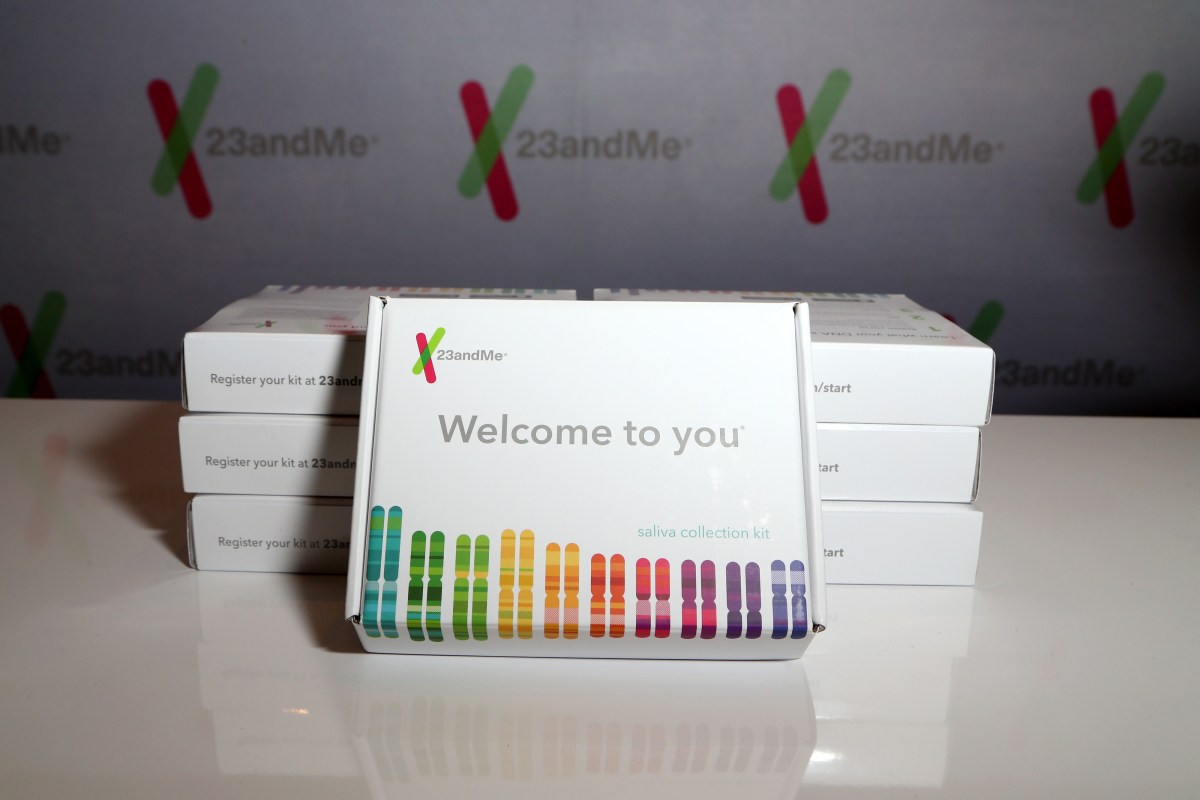Hope this isn’t a repeated submission. Funny how they’re trying to deflect blame after they tried to change the EULA post breach.
In a way, it kind of is their fault for trusting companies like this in the first place. I’d never consider using companies like this and both think and hope none of my family members would either.
Obviously, the breach is the company being incompetent like many companies are when it comes to security.
Unfortunately like you said, family members can do so of their own accord which is exactly what one of mine did, despite my warnings of such.
It’s completely impossible for me to “un-ring” that bell now, so to speak.
I knew better than to give thee companies my DNA but of course I’ve had family give it to them. I suppose if I was wanted for an unsolved murder I’d be a bit concerned, but I’m still not happy that anyone’s DNA is compromised that I’m associated with.
The question to me is what’s the play with that data. I’d assume they would have a use for it if they went to the trouble of stealing it. I suspect in the future this will be lucrative data, but what’s the play right now??
For the grand majority of folks, Name, relationship label, self-reported location (city or zip), and birth year.
The ones with DNA compromises would be the ones whose accounts were directly accessed.
From the article:
The data breach started with hackers accessing only around 14,000 user accounts. The hackers broke into this first set of victims by brute-forcing accounts with passwords that were known to be associated with the targeted customers, a technique known as credential stuffing.
From these 14,000 initial victims, however, the hackers were able to then access the personal data of the other 6.9 million million victims because they had opted-in to 23andMe’s DNA Relatives feature. This optional feature allows customers to automatically share some of their data with people who are considered their relatives on the platform.
I wonder if they can identify a genetic predisposition that these patients had that made them more prone to compromising their passwords? And then if so, was it REALLY their fault?
Blaming your customers is definitely a strategy. It’s not a good one, but it is a strategy.
BRB deleting my 23AndMe account
As if deleting your account deletes your data.
Surely they have a GDPR-compliant way to have your info removed. Right?
They’re an American company, and I’m not yet aware of any lawsuits setting the precedent of the GDPR applying to server infrastructure in the USA, which is outside the jurisdiction of the GDPR.
So if they’ve copied your data to their American servers already (you can bet they have), it’s there for good.
One thing the company could have done is periodically check https://haveibeenpwned.com/ to see if their users accounts are part of breaches. Also, they offer a password API, which they could have used to blacklist weak passwords (so they are less likely to get cracked after getting exposed in unrelated breaches). The password API uses K-Anonymity, so the passwords are not fully transmitted, and the final check if the password has been found in previous breaches happens locally.
In case some developer here reads that, I recommend implementing at least the password check. Laminas (and probably other major frameworks) offer predefined functions for that, so the implementation should be very fast and simple.
It is, it’s their fault for sending their data to some company that wants your DNA. I’m curious too, but i’m not that dumb.
Victim blaming is so cool!
ya’ll are projecting a whole lot onto what i said here… go right ahead, i know that you will never see things any way but your own. Have a nice day.
You’re literally blaming the victims and calling them dumb, how am I projecting?
This is the best summary I could come up with:
“Rather than acknowledge its role in this data security disaster, 23andMe has apparently decided to leave its customers out to dry while downplaying the seriousness of these events,” Hassan Zavareei, one of the lawyers representing the victims who received the letter from 23andMe, told TechCrunch in an email.
In December, 23andMe admitted that hackers had stolen the genetic and ancestry data of 6.9 million users, nearly half of all its customers.
The hackers broke into this first set of victims by brute-forcing accounts with passwords that were known to be associated with the targeted customers, a technique known as credential stuffing.
“The breach impacted millions of consumers whose data was exposed through the DNA Relatives feature on 23andMe’s platform, not because they used recycled passwords.
23andMe’s attempt to shirk responsibility by blaming its customers does nothing for these millions of consumers whose data was compromised through no fault of their own whatsoever,” said Zavareei.
Lawyers with experience representing data breach victims told TechCrunch that the changes were “cynical,” “self-serving,” and “a desperate attempt” to protect itself and deter customers from going after the company.
The original article contains 721 words, the summary contains 184 words. Saved 74%. I’m a bot and I’m open source!
“users negligently recycled and failed to update their passwords following these past security incidents, which are unrelated to 23andMe…Therefore, the incident was not a result of 23andMe’s alleged failure to maintain reasonable security measures,”
This is a failure to design securely. Breaking into one account via cred stuffing should give you access to one account’s data, but because of their poor design hackers were able to leverage 14,000 compromised accounts into 500x that much data. What that tells me is that, by design, every account on 23andMe has access to the confidential data of many, many other accounts.
And it’s your fault you have access to them. Stop doing bad things and keep your information secure.
you clearly have no familiarity with the principles of information security. 23andMe failed to follow a basic principle: defense in depth. The system should be designed such that compromises are limited in scope and cannot be leveraged into a greater scope. Password breaches are going to happen. They happen every day, on every system on the internet. They happen to weak passwords, reused passwords and strong passwords. They’re so common that if you don’t design your system assuming the occasional user account will be compromised then you’re completely ignoring a threat vector, which is on you as a designer. 23andMe didn’t force 2 factor auth (https://techcrunch.com/2023/11/07/23andme-ancestry-myheritage-two-factor-by-default/) and they made it so every account had access to information beyond what that account could control. These are two design decisions that enabled this attack to succeed, and then escalate.
Didn’t say /s…
I don’t think so. Those users had opted in to share information within a certain group. They’ve already accepted the risk of sharing info with someone who might be untrustworthy.
Plenty of other systems do the same thing. I can share the list of games on my Steam account with my friends - the fact that a hacker might break into one of their accounts and access my data doesn’t mean that this sharing of information is broken by design.
If you choose to share your secrets with someone, you accept the risk that they may not protect them as well as you do.
There may be other reasons to criticise 23andMe’s security, but this isn’t a broken design.
23andMe admitted that hackers had stolen the genetic and ancestry data of 6.9 million users
I’m honestly asking what the impact to the users is from this breach. Wasn’t 23andMe already free to selling or distribute this data to anybody they wanted to, without notifying the users?
That’s not how this works. They are running internationally, and GDPR would hit them like a brick if they did that.
I would assume they had some deals with law enforcement to transmit data one narrow circumstances.
I’m honestly asking what the impact to the users is from this breach.
Well if you signed up there and did an ancestry inquiry, those hackers can now without a doubt link you to your ancestry. They might be able to doxx famous people and in the wrong hands this could lead to stalking, and even more dangerous situations. Basically everyone who is signed up there has lost their privacy and has their sensitive data at the mercy of a criminal.
This is different. This is a breach and if you have a company taking care of such sensitive data, it’s your job to do the best you can to protect it. If they really do blame this on the users, they are in for a class action and hefty fine from the EU, especially now that they’ve established even more guidelines towards companies regarding the maintenance of sensitive data. This will hurt on some regard.
If they really do blame this on the users
It’s not that they said:
It’s your fault your data leaked
What they said was (paraphrasing):
A list of compromised emails/passwords from another site leaked, and people found some of those worked on 23andme. If a DNA relative that you volunteered to share information with was one of those people, then the info you volunteered to share was compromised to a 3rd party.
Which, honestly?
Completely valid. The only way to stop this would be for 23andme to monitor these “hack lists” and notify any email that also has an account on their website.
Side note:
Any tech company can provide info if asked by the police. The good ones require a warrant first, but as data owners they can provide it without a warrant.
That’s not 23 and me fault at all then. Basically boils down to password reuse. All i would say is they should have provided 2fa if they didn’t.
All i would say is they should have provided 2fa if they didn’t.
At this point, every company not using 2FA is at fault for data hacks. Most people using the internet have logins to 100’s of sites. Knowing where to do to change all your passwords is nearly impossible for a seasoned internet user.
A seasoned internet user has a password manager.
Not using one is your negligence, no one else’s.
One password to break them all, and in the dark web bind them.
I’m honestly asking what the impact to the users is from this breach.
The stolen info was used to databases of people with jewish ancestry that were sold on the dark web. I think there was a list of similar DB of people with chinese ancestry. 23andme’s poor security practices have directly helped violent white supremecists find targets.
If you’re so incompetent that you can’t stop white supremecists from getting identifiable information about people from minorities, there is a compelling public interest for your company to be shut down.
That is a whoooolllee lot of assumptions
Why do you think someone would buy illegally obtained lists of people with Jewish or Chinese ancestry? And who do you think would be buying it?
Scammers, that opens up a lot of scam potential.
Hi, I’m your new cousin.
Scammers would buy all info, not specifically targeted to people of Jewish or Chinese descent. That’s not what’s being sold.
Who do you think would want only information about people with Jewish or Chinese ancestry, and why?
OK you’re gonna have to give me a link to what you’re talking about. It feels like you are being specific, and I am being generic.
It’s the same incident, the OP article just didn’t mention it.
I’m seeing so much FUD and misinformation being spread about this that I wonder what’s the motivation behind the stories reporting this. These are as close to the facts as I can state from what I’ve read about the situation:
- 23andMe was not hacked or breached.
- Another site (as of yet undisclosed) was breached and a database of usernames, passwords/hashes, last known login location, personal info, and recent IP addresses was accessed and downloaded by an attacker.
- The attacker took the database dump to the dark web and attempted to sell the leaked info.
- Another attacker purchased the data and began testing the logins on 23andMe using a botnet that used the username/passwords retrieved and used the last known location to use nodes that were close to those locations.
- All compromised accounts did not have MFA enabled.
- Data that was available to compromised accounts such as data sharing that was opted-into was available to the people that compromised them as well.
- No data that wasn’t opted into was shared.
- 23andMe now requires MFA on all accounts (started once they were notified of a potential issue).
I agree with 23andMe. I don’t see how it’s their fault that users reused their passwords from other sites and didn’t turn on Multi-Factor Authentication. In my opinion, they should have forced MFA for people but not doing so doesn’t suddenly make them culpable for users’ poor security practices.
I think most internet users are straight up smooth brained, i have to pull my wife’s hair to get her to not use my first name twice and the year we were married as a password and even then I only succeed 30% of the time, and she had the nerve to bitch and moan when her Walmart account got hacked, she’s just lucky she didn’t have the cc attached to it.
And she makes 3 times as much as I do, there is no helping people.
These people remind me of my old roommate who “just wanted to live in a neighborhood where you don’t have to lock your doors.”
We lived kind of in the fucking woods outside of town, and some of our nearest neighbors had a fucking meth lab on their property.
I literally told him you can’t fucking will that want into reality, man.
You can’t just choose to leave your doors unlocked hoping that this will turn out to be that neighborhood.
I eventually moved the fuck out because I can’t deal with that kind of hippie dippie bullshit. Life isn’t fucking The Secret.
I have friends that occasionally bitch about the way things are but refuse to engage with whatever systems are set up to help solve whatever given problem they have. “it shouldn’t be like that! It should work like X”
Well, it doesn’t. We can try to change things for the better but refusal to engage with the current system isn’t an excuse for why your life is shit.
The bootlickers really come out of the woodwork here to suck on corporate boot.Edit: wrong thread.
What in the fuck are you talking about? You’re the one standing up for the corporation
Yeah that is my bad, responded to the wrong thread.
In this case, the corporation isn’t wrong that users aren’t doing due dilligence.
Happens to the best of us
Step 4 is where 23andme got hacked
By your logic I hack into every site I use by … checks notes presenting the correct username and password.
It’s called social hacking,
Well, they have a point.
Gentle reminder to plop your email address in here and see if you, much like 14,000 23andMe users, have had an account compromised somewhere. Enable two-factor where you can and don’t reuse passwords.
Welp my two gmail address have been pwned. Good thing I don’t use them and I have limited use of Google services.
I mean, it is kinda their fault in the first place for using an optional corporate service that stores very private data of yours which could be used in malicious ways.













